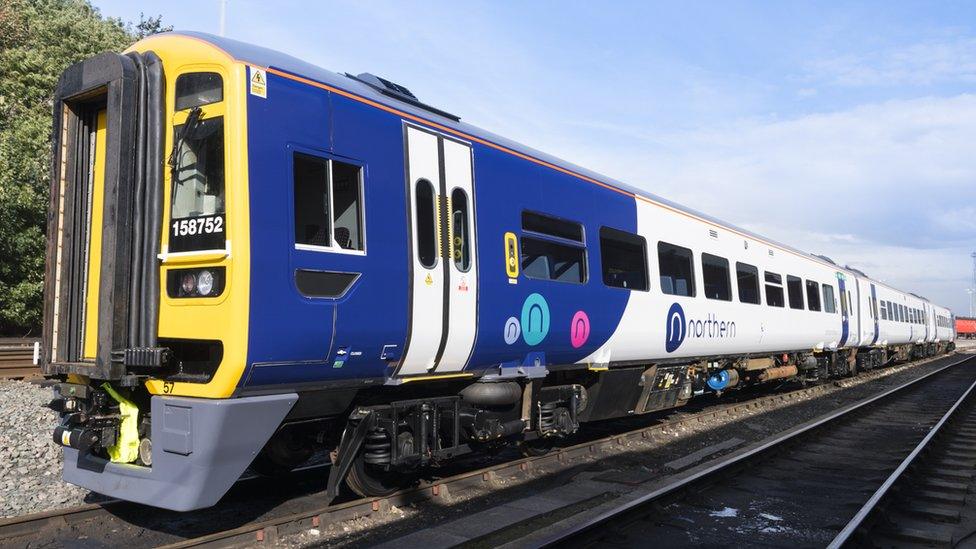UK's railway stations with most train delays revealed
- Published
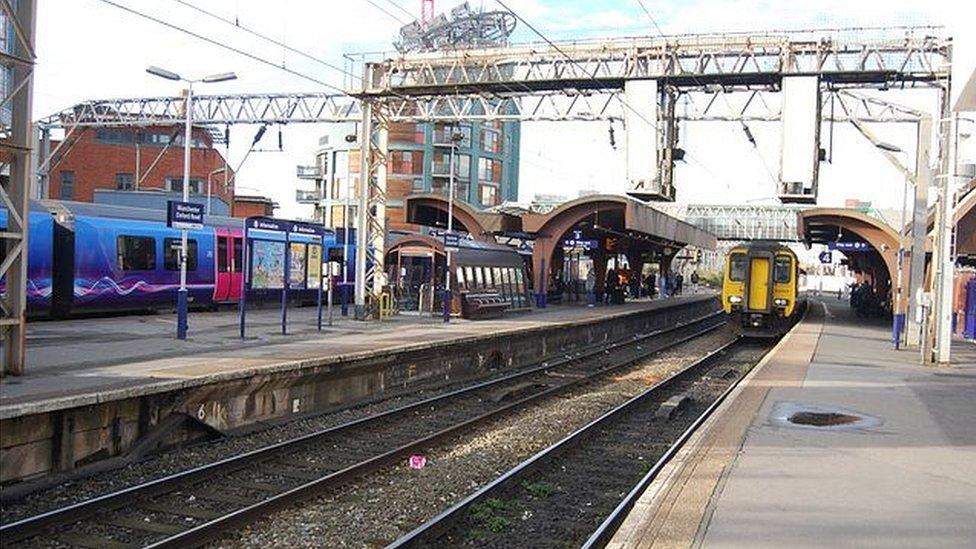
Manchester Oxford Road had the least punctual services, with 68% delayed
Rail passengers have been delayed on more than half of all services from 10 of Britain's busiest stations this year, research has found.
Manchester Oxford Road took the "undesirable crown" of performing worst, according to Which?
It found York, Gatwick Airport and Birmingham New Street all saw less than 40% of trains arrive on time.
A rail commuter in London said people face "a daily battle simply to get from A to B".
Robert Nisbet, from the Rail Delivery Group, which represents the rail industry, said it recognised delays were "frustrating" and billions were being invested to "minimise disruption".
Which? looked at services at the 10 busiest stations in London and the 20 busiest outside the capital from the start of January until the end of September.
'Dire knock-on effects'
Using data from performance tracking site On Time Trains, the group found 68% of services were delayed at Manchester Oxford Road, rising to 77% during peak times.
The city's two largest stations, Piccadilly and Victoria, also suffered a high percentage of late services.
A Which? spokesman said the "timetable chaos earlier this year", caused by the implementation of new schedules by train operator Northern, had had "dire knock-on effects for [Manchester] passengers' personal and professional lives".
The data also showed the percentage of service cancellations at each station.
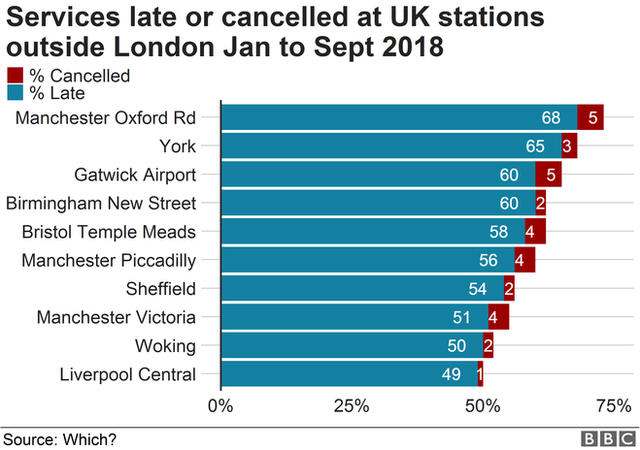
London King's Cross saw the highest rate of cancellations - 6% - while Manchester Oxford Road and Gatwick Airport were once again among the worst performing.
The Which? spokesman said that while not all delays and cancellations were the fault of the train operators, these "underperforming destinations and services demonstrate how monitoring and enforcement of punctuality is currently not up to scratch".
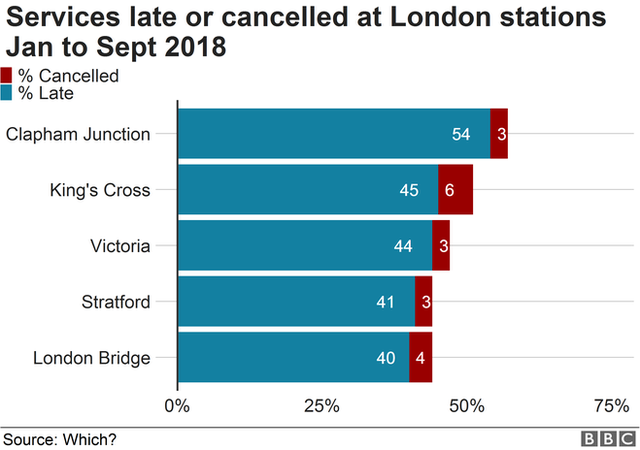
Manchester commuter Mark Wylie said the problem "results in people getting even earlier trains just in case their chosen service is cancelled", while Jamie Buchanan-Conroy, who travels through Clapham Junction, said the daily delays had caused him to change his commute.
"I paid... to take an indirect route to work because the direct train was so unreliable, I couldn't use it to get to work," Mr Buchanan-Conroy said.
"I'm lucky that I had an alternative option - many have no choice but to face a daily battle simply to get from A to B."
Mr Nisbet, regional director at the Rail Delivery Group, said: "We know how frustrating delays are which is why, as part of our long-term plan, we're investing billions to ease congestion, reduce delays and minimise disruption.
"We're also improving awareness of compensation, with payments increasing 80% in the last two years.
"We will continue to push for big, bold reform as part of the Williams Review to enable rail companies to deliver even more for customers, employees, communities and the economy."

Highest percentage of cancellations
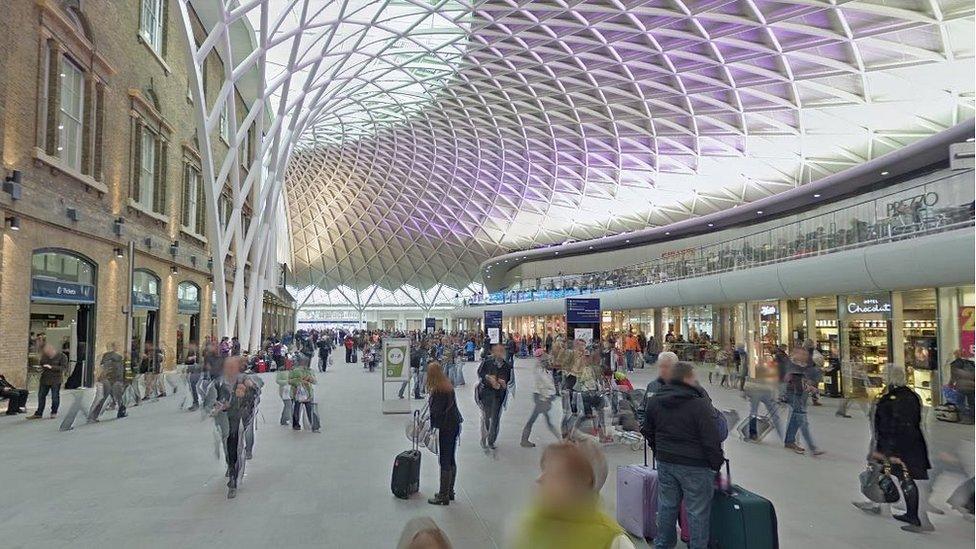
London King's Cross - 6%
Manchester Oxford Road, Gatwick Airport, Cambridge - 5%
Bristol Temple Meads, Manchester Piccadilly, Manchester Victoria, Edinburgh Waverley, London Bridge, London Paddington, London St Pancras - 4%
- Published16 October 2018
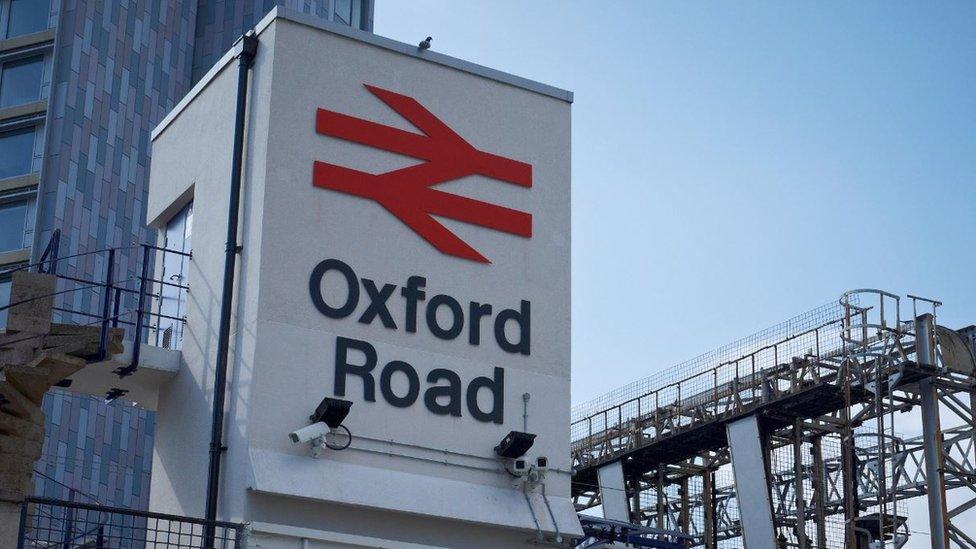
- Published20 September 2018
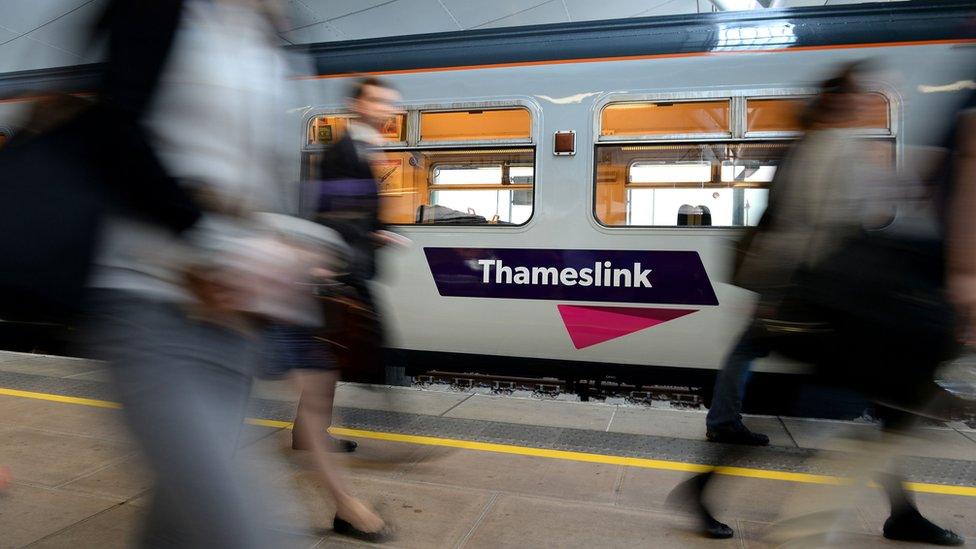
- Published20 September 2018

- Published16 July 2018
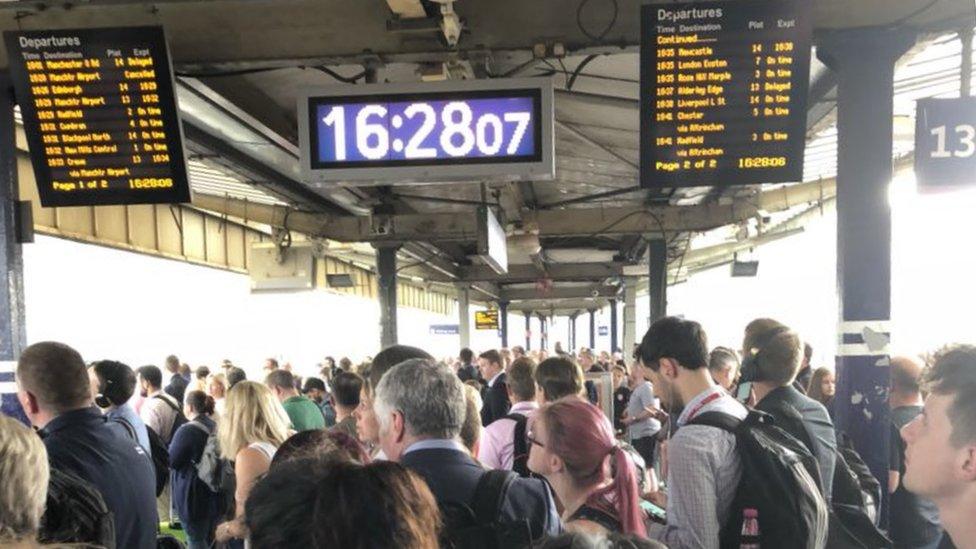
- Published1 June 2018
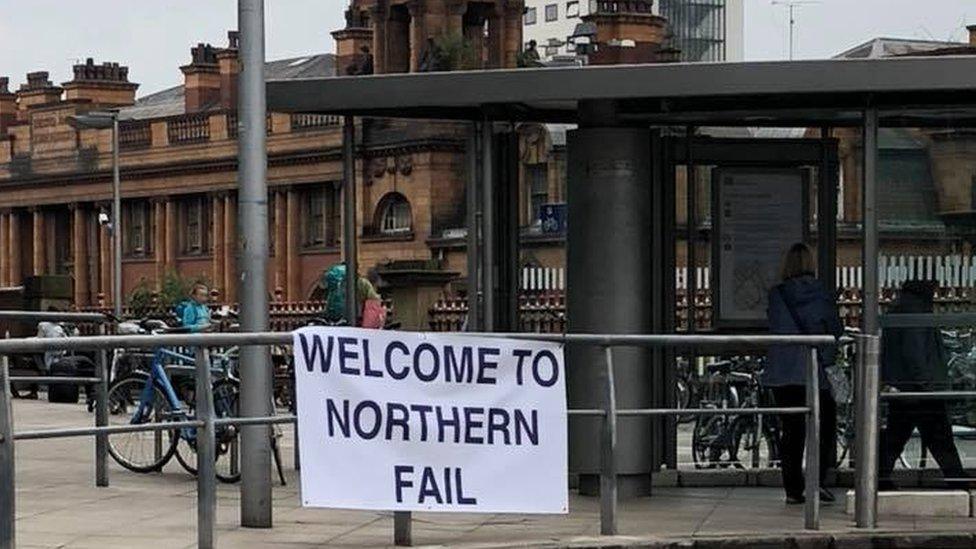
- Published31 May 2018
